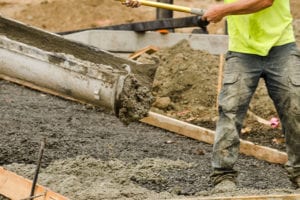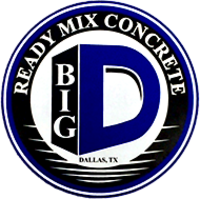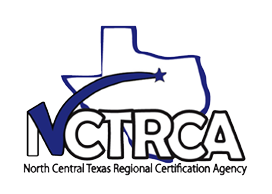Concrete Or Steel Which Material Is Stronger?
What is the Strongest Type of Concrete?
Ready mix concrete is a ready-mix, which is an aggregate of different materials that has been blended together and then put in a form that allows it to be used in construction. This article discusses the different types of concrete and the levels of concrete strength.
The Standard Grade of Concrete

The Standard Grade of Concrete is the most common type of concrete and is also the most affordable. It is made from a mix of Portland cement, sand, and gravel. The Standard Grade of Concrete has a compressive strength of about 2,500 psi. This strength is needed to ensure the concrete can withstand the weight of the floors, walls and beams it will be supporting. It also has the lowest slump rate of all grades, which means that it can allow for firm connections between floors and walls. The Standard Grade of Concrete is well suited for residential construction projects such as new home construction or renovations. There are a wide range of surfaces that can be used with this grade of concrete including poured in place, precast and cast in place.
The Standard Grade can also be used on larger scale commercial projects including driveways and walkways. It is commonly used in multi-story buildings due to its lower cost than the higher grade varieties. This type of concrete is suitable for use both indoors and out, and can be used for projects ranging from small patio surfaces to large driveways and parking areas.
What are the Properties of Concrete?
Concrete is a mixture of water, aggregate, and emulsion. The specific proportions of these ingredients determine the type of concrete. Concrete is typically made of three types of materials: sand, gravel, and crushed stone. The type of cement used also affects the properties of concrete.
Sand and gravel are the most common ingredients in concrete. They form the matrix that holds the other ingredients together. Concrete is strong and durable because it is able to resist compression, which is why it is often used for buildings and roadways. Crushed stone can also be added to make concrete more dense and resistant to weathering. The three primary types of concrete are:
- Portland cement concrete (PCC) – this type of concrete is made of sand, crushed stone, andPortland cement. It has a high density, which makes it strong but also increases its cost.
- Aggregate concrete – this type is made from two or more materials that include aggregate and some type of binder such as fly ash or slag. Its main disadvantage is the tendency to settle over time. This means that buildings with aggregate-concrete structures need constant maintenance to remain in their intended shape.
- Cast-in-place concrete – this type of concrete is often used for structural foundations, especially those that will be exposed at ground level because it requires no formwork. It is made by casting the ingredients into a mold, usually in a precast or factory-made form.
- Concrete block – like cast-in-place concrete, this type of concrete is produced directly from molds and requires no additional support. The dimensional strength of block can vary because it can be made with different grades of aggregate that include crushed stone, sand and/or cement. Most blocks are measured by their thickness and width (1″x3″ or 2″x4″).
- Hollow concrete forms (HCF) – these are formed from layers of concrete poured into a steel box. They provide strength to exterior walls because they contain joints between the layers. These forms allow for more architectural details than poured concrete
What makes concrete stronger?
Concrete is made from a mixture of cement, gravel and sand. The way that these ingredients are mixed together affects the strength of the concrete. Cement is the most important ingredient because it makes the concrete hard and elastic. Gravel helps to bind the concrete together and keep it from cracking. Sand helps to provide texture and prevent cracking.
A typical concrete block wall is made from three to five cubic yards of concrete. If the wall is being built in a basement, you may only need one or two cubic yards. Sometimes, you can get away with as few as one and a half cubic yards if the area is small and your foundation is deep enough to withstand the weight of the wall.
What are “mix ratios”? – Mix ratios define how much of each type of material needs to be mixed together for a particular job. For example, if you’re mixing up a batch of mortar mix, you’ll want to use 3 parts cement, 1 part sand (or crushed stone) and 2 parts gravel. To figure out what your mix ratio should be, you’ll want to divide the weight of each ingredient by the total amount of concrete you’re going to make. So, for our mortar mix example, we have 3 pounds of cement, 1 pound of sand and 2 pounds of gravel. If we are going to make two cubic yards of mixture, our mix ratio would be 3:1:2 or 3 parts cement, 1 part sand and 2 parts gravel. Mix ratios vary from one material to another and from job to job. A good rule of thumb is that the higher the ratio (or the more ounces per cubic yard), the stronger the end product will be.
Call Big D Ready Mix for All of your Concrete Needs!
It can be tough to know which type of concrete is the strongest. Luckily, Big D Ready Mix can help you make a decision based on your specific needs.
If you’re looking for a trusted source for all your concrete needs, then you should call Big D Ready Mix. Here at Big D Ready Mix Concrete, we have a team of highly trained and experienced professionals who are ready to assist you with your residential and commercial concrete and construction-related needs for all types of projects.
We can provide you with high-quality mixes that not just cure well but will also give you a solid, long-lasting result.
We have been serving the Dallas area since 2002. Give us a call at 972-737-7976 or contact us online and one of our professionals will guide you through the process.
Looking for the best ready mix concrete supplier in Dallas, TX?
Big D Ready Mix Concrete offers you high-quality concrete products and excellent service!
Sister Companies


Our Certifications

Small Business Enterprise
Women Business Enterprise
Disadvantaged Business Enterprise
About Us
Big D Ready Mix Concrete has been serving clients in the Dallas, TX area since 2002, with over 400 utility mixes, high-strength wall mixes, exposed aggregate mixes, flexural strength mixes, stamp concrete mixes, flowable fill mixes, grout mixes, and trailer pump mixes.
Contact Information
10361 Bickham Rd
Dallas, TX 75220
(972) 737-7976
Email Us
Monday-Saturday 5am to 6pm
Dispatch Hours: Project Dependent